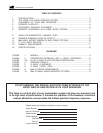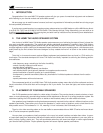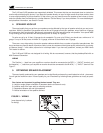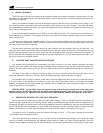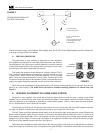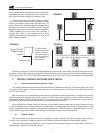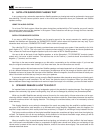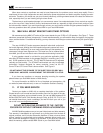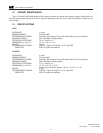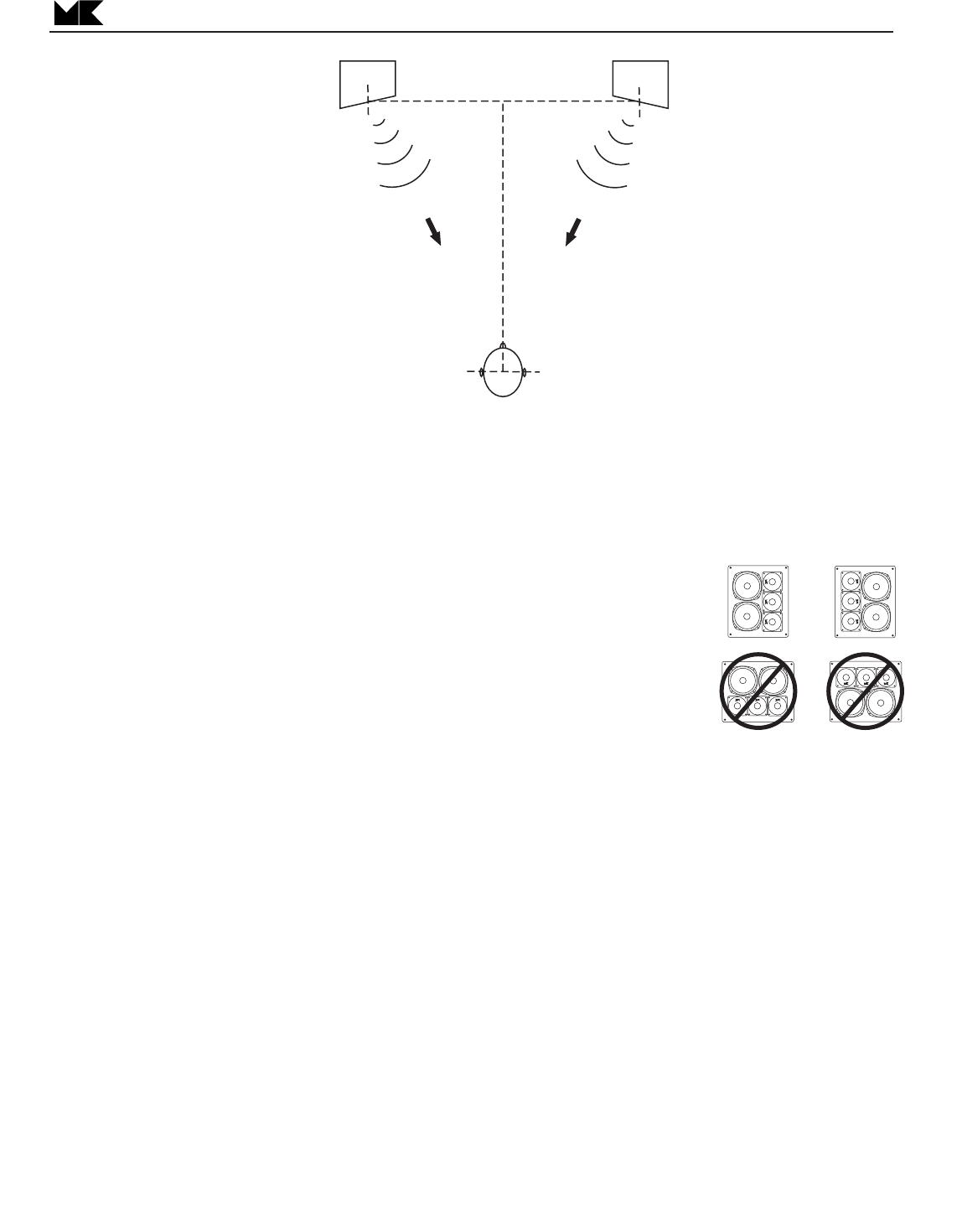
cially in the phantom center. You may also want to angle (or "toe-in") the speakers slightly. This often improves the sharp-
ness of the stereo image, and provides a wider seating area. The S-150 Left and Right speakers provide a default toe-
in through the angle of their front baffles.
D. VERTICAL ORIENTATION
The performance of your speakers is dependent on their orientation.
THX speakers are designed for controlled vertical dispersion and wide hor-
izontal dispersion. By controlling the vertical dispersion, we limit the amount
of sound that would otherwise be reflected with a time delay from the floor
and ceiling (for the reasons discussed in B. above).
This means the speakers should always be vertically oriented. The S-
150 is vertically oriented when its tweeters are vertically stacked (not next
to each other). When vertical, the controlled dispersion is in the correct
plane. If they are oriented horizontally (on their sides), listeners right or left
of a direct line from the center of the speaker will hear a compromised sound
quality, an irregular frequency response, as well as some other problems.
While this may be acceptable for background listening, we strongly recommend that you do not place them on their
sides for any other listening. The S-250 and S-150 must be oriented vertically (tweeters in a vertical line). See
Figure 3.
6. SPEAKER PLACEMENT IN A HOME AUDIO SYSTEM
Placement is very important. You should take at least the same amount of time and care in setting up your M&K
speakers as you would with the most exotic high-end stereo system. Some listeners make the mistake of taking too
casual an approach to the installation of speakers in a home theatre system. In fact, in many ways the setup of speak-
ers in a home theatre is more critical than for stereo.
Even though the S-250 and S-150 are less influenced by the room environment than most other speakers, the time
you spend in carefully installing them will significantly enhance your enjoyment of them later.
The Left, Center and Right speakers should ideally all be at the same height as the television screen. Because the
Center channel speaker cannot cover the screen, in will have to be placed above or below the screen. Try to set up all
three speakers at the same height. If this is not practical, set them up so that they are no further apart vertically than the
speakers' two (2) foot height. In other words, the bottom of the speaker the farthest from the floor should be no higher
than the top of the speaker closest to the floor. See Figure 4.
Remember that the speakers need to be aimed at the listening position when they are not placed with the tweeters
at the same height as the listeners' ears. Your speakers have great flexibility in combination with stands, mounting brack-
MAIN SATELLITE SPEAKER
6
X
Y
A
B
Aim the speakers
at the primary listener.
Line X - Y should equal
line A - B.
(Line A - B appears longer
in this diagram due to an
optical illusion).
FIGURE 2
SEPARATION BETWEEN LEFT
AND RIGHT SPEAKERS
CORRECT
ORIENTATION
INCORRECT
ORIENTATION
FIGURE 3
or
or




